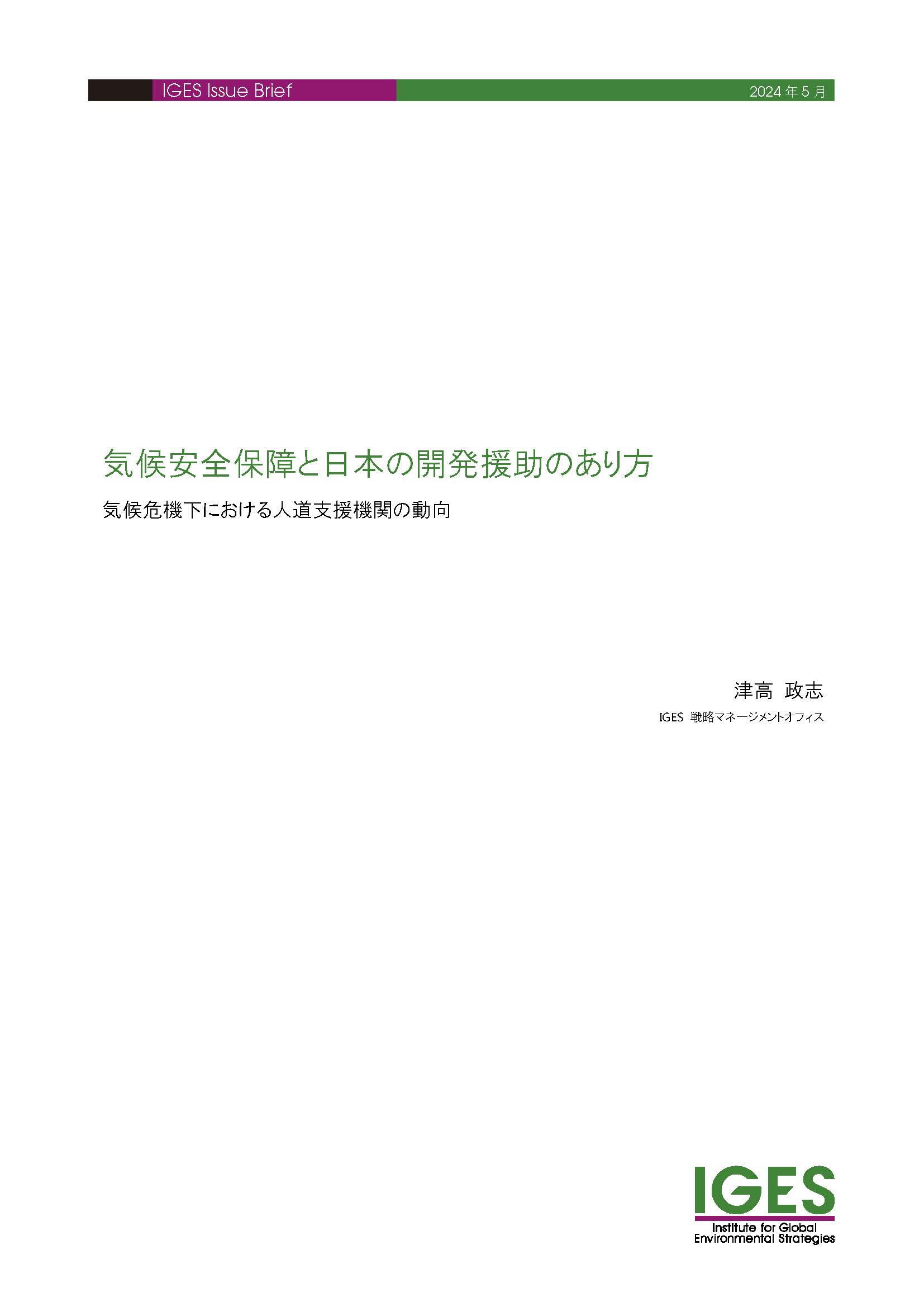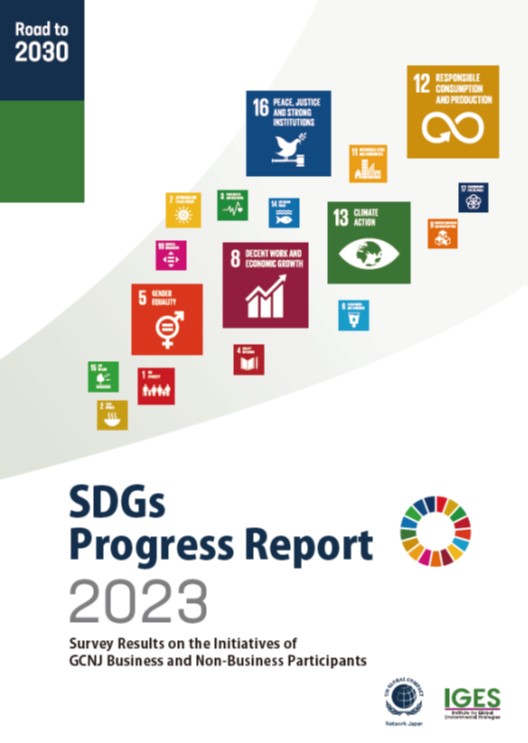地球規模で進む気候変動は、気象の激甚化、そして洪水や干ばつなどの自然災害を世界各地で引き起こし、新たな人道危機を生み出している。すでに社会基盤が脆弱化している紛争下の人々にとって、気候変動はリスクを増幅させる要因にもなっている。気候変動の負の影響が人類の発展や国際政治・経済の安定を阻むこの気候危機とも呼ばれる状況は、「気候安全保障」という視点から捉えることができる。人間の安全保障を掲げて開発援助に注力する日本にとって、気候危機下の人道支援の現状を分析・評価することは、今後の外交政策を展望する上で必須の課題だと言えるだろう。 気候安全保障は「日本国内に直接生じる安全保障リスク」と「日本国外で生じる安全保障リスクから波及して生じる日本の安全保障リスク」の2つに分類できる。本稿では...
- Clear all
- Research Unit: (-) Strategic Management Office
- Research Unit: (-) Sustainable Consumption and Production
- Region/Country: (-) Asia
- Region/Country: (-) Western Europe
Results 1 - 10 of 713 (Sorted by date)
In 環境経済・政策研究
本稿は,ガーナ,インドネシア,ベトナムの3 カ国でプラスチック汚染対策のためのステークホ ルダー協働の制度化に,「中心的なアクター」と しての役割を果たしたと考えられるナショナル・ プラスチック・アクション・パートナーシップ (NPAP)について,著者らが実施した調査・分析 に基づいている(Asokan et al., 2023).NPAPは, 世界経済フォーラムのイニシアティブであるグ ローバル・プラスチック・アクション・パート ナーシップ(GPAP)の一環として各国単位で形成 されたイニシアティブである.本研究の目的は, このNPAPの事例を通じて,プラスチック汚染対 策のステークホルダー協働の仕組みについて分析 し,現在合意に向けた交渉が行われているプラス...
Keywords:
Behavioural insight interventions, alongside traditional policy measures, offer promising solutions to nudge consumers away from single-use plastic consumption. This comprehensive Guidance Note shares practical lessons on the application of behavioural insights in four ASEAN countries: Indonesia, the Philippines, Thailand and Viet Nam. The...
Keywords:
In Circular Economy Adoption Catalysing Decarbonisation Through Policy Instruments
This chapter provides the most recent policy frameworks for sound material-cycle society (SMCS) and promoting the 3Rs (reduce, reuse, and recycle) as well as circular economy transition in Japan, with some illustrations of the best practices carried out by the private sector and Japanese local governments as outcomes.
Keywords:
In Sustainability Science
This is the Editorial of the first IGES-initiated Special Feature of the Sustainability Science journal. This Special Feature on Just and Sustainable Transitions in Net-Zero Asia aims to highlight how researchers, policymakers, and practitioners across Asia are applying just transition thinking to address pressing environmental challenges, climate...
In Foods
With the steady growth of the global population and the accelerated urbanization process, the carbon footprint resulting from food waste has a significant impact on the environment and sustainable development. Considering Shanghai’s significance as a major urban center in China and a global hub for economic and cultural activities, this study...
In Sustainability
Rapid economic development has led to an overwhelming surge in waste generation, demanding urgent and comprehensive waste management solutions, particularly in developing countries. Source separation is a critical and indispensable step in integrated waste management and is featured as a government-led pattern in general. However, its...
This report includes an analysis of the level of awareness of the SDGs, as well as the progress made in addressing the five SDG Goals (thematic themes) that the UN Global Compact focuses on: Goals 5 (gender equality), 8 (work and human rights), 13 (climate change) and 16 (anti-corruption), and Goal 12 (sustainable consumption and production), which...
In Sustainability
Food waste has become a pressing global issue in recent years. In China, the issue of food waste has become increasingly severe. As a provincial capital city, Harbin is also a major agricultural city in China with distinct urban and rural features. This paper uses Harbin as a case study to evaluate different strategies for preventing and reducing...
In Sustainability Science
There has been broad recognition that current food systems need to go through a process of transformation and transition. In the similar way that other areas have transitioned to be more sustainable, the transition process for food systems has some issues related to justice in terms of achieving more sustainable and inclusive food production...




